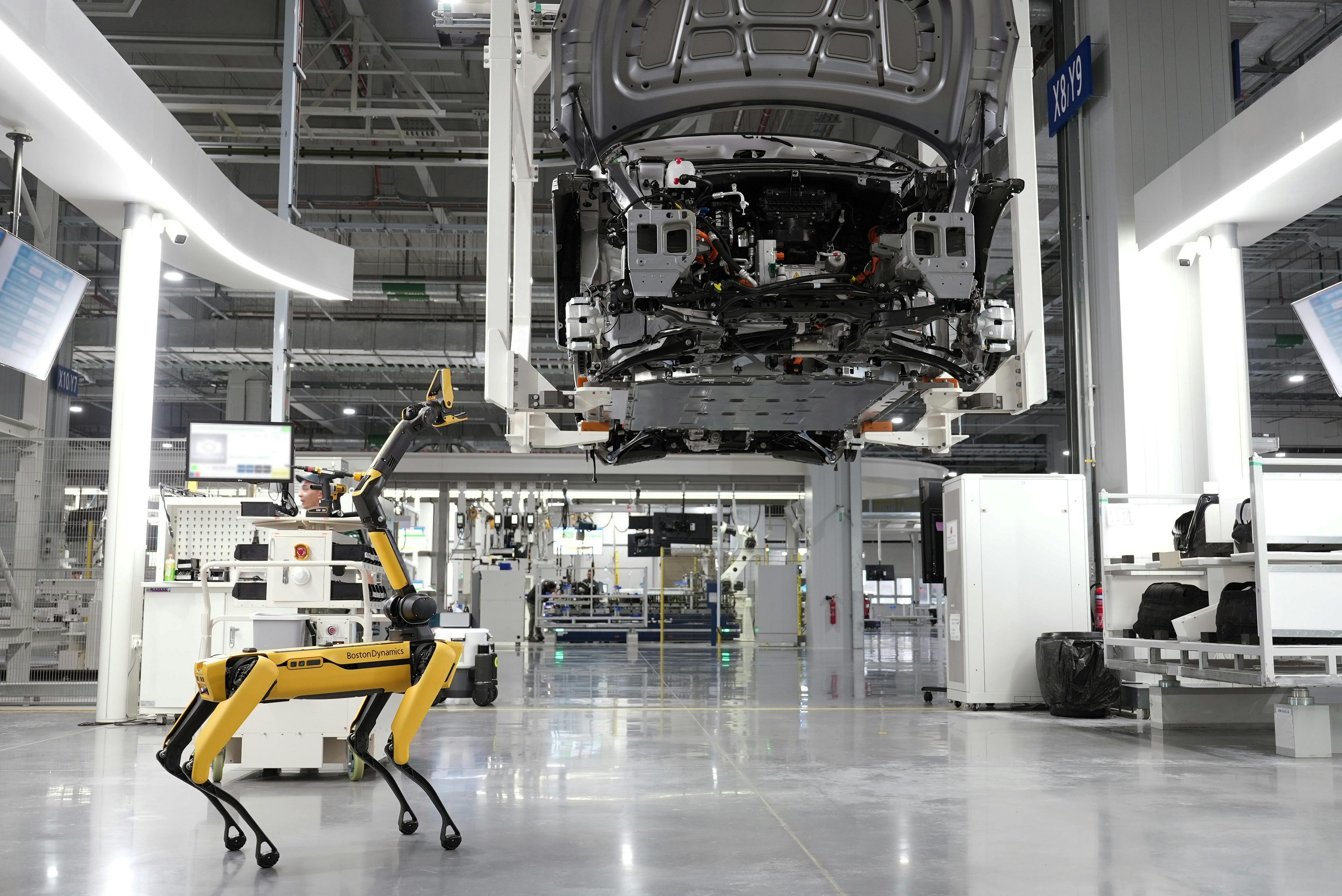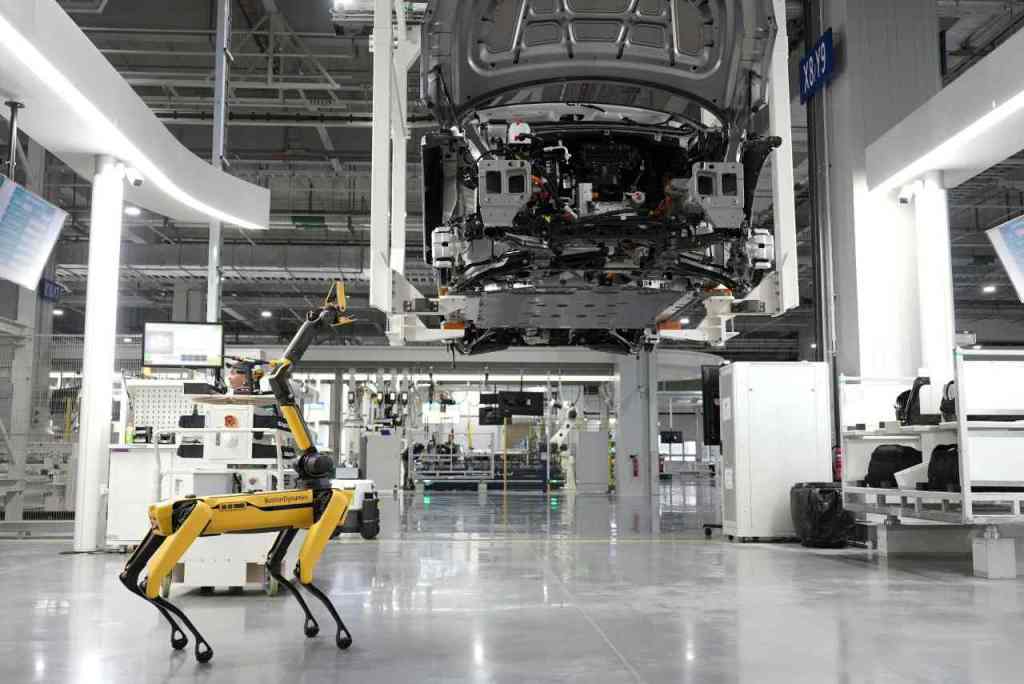OpenAI’s Strategic Expansion in Singapore: Driving AI Innovation and Economic Growth

OpenAI, the pioneering artificial intelligence research and deployment company, is significantly expanding its presence in Singapore, a move poised to bolster its global strategy and foster advancements in AI across the Asia-Pacific region. The company plans to increase its headcount in Singapore to between 50 and 70 employees by the end of December 2025, establishing the city-state as a crucial hub for its operations. This expansion underscores Singapore’s recognized position as a leading market for AI adoption and innovation globally.
OpenAI’s Growing Footprint in Singapore
Singapore has become a cornerstone of OpenAI’s global expansion efforts. The company has been establishing its Asia-Pacific base in the Republic since November 2024. The planned headcount increase by end-December 2025 signifies a substantial commitment to the region. OpenAI’s strategy in Singapore is focused on building its presence to serve a rapidly growing market. The Asia-Pacific region, in general, is experiencing an impressive year-over-year growth rate of approximately four times, with Singapore standing out as one of the top three global markets for per-capita adoption of AI technologies. Reports indicate that nearly one in four residents in Singapore uses ChatGPT, highlighting the deep integration of AI tools within the population.
The strategic decision to expand in Singapore was influenced by several factors, including a welcoming government environment, tech-embracing companies, and a substantial user base for its products like ChatGPT. OpenAI’s chief strategy officer, Jason Kwon, noted that the company’s team in Singapore has a strong sales focus and has already made significant inroads, securing clients such as Singapore Airlines, Grab, Sea Group, and the Singapore Tourism Board. OpenAI is also exploring opportunities for future AI data center sites within the Asia-Pacific region, further cementing its long-term commitment to the area.
Economic and Business Implications of AI Expansion
The strategic expansion of AI capabilities, exemplified by OpenAI’s investments in Singapore, is poised to significantly bolster economic competitiveness on both national and regional levels. AI-driven productivity gains are expected to inject billions into economies. Projections suggest that Singapore alone could see upwards of SGD 53 billion from enhanced labor productivity over the next decade. By automating routine tasks and augmenting human capabilities, AI allows workforces to focus on higher-value activities, driving innovation and efficiency. This leap in productivity is essential for economies aiming to maintain growth and remain at the forefront of global innovation.
AI’s Contribution to Economic Competitiveness
The widespread adoption of AI tools is increasingly becoming a critical determinant of a nation’s economic resilience and its capacity to compete in the global marketplace. In Singapore, the digital economy experienced robust growth, reaching S$128.1 billion in 2024, accounting for 18.6% of the nation’s GDP. This growth was significantly propelled by digitalization and AI adoption across various industries, not just within the Information & Communications sector. Reports indicate that AI adoption rates tripled among Small and Medium Enterprises (SMEs) in 2024, reaching 14.5%, while non-SMEs saw a jump from 44% to 62.5%. Businesses utilizing AI-enabled solutions have reported substantial cost savings, with AI-powered cybersecurity solutions yielding savings of up to 71%.
Opportunities for Local Businesses and Startups
The presence of global AI leaders like OpenAI in Singapore creates a wealth of opportunities for local businesses and startups. These organizations can leverage advanced AI tools to enhance their products and services, improve operational efficiency, and gain deeper insights into customer behavior. Partnerships with AI firms can provide access to cutting-edge technology, specialized expertise, and global markets. Furthermore, the growth of the AI sector spurs the development of ancillary industries, creating new niches for startups focused on AI implementation, customization, and support services. This symbiotic relationship fosters a more dynamic and competitive business environment, driving innovation and economic diversification within Singapore and the wider Asia-Pacific region.
Enhancing Productivity and Efficiency Through AI
At its core, AI’s economic impact is largely driven by its capacity to enhance productivity and efficiency across a multitude of business functions. By automating repetitive tasks, optimizing complex processes, and providing advanced analytical capabilities, AI empowers both individuals and organizations to achieve more with fewer resources and in less time. A report commissioned by Google estimates that AI-driven labor productivity could free up nearly 21 working days per year for each worker in Singapore, enabling a shift towards more strategic and creative endeavors. This boost in efficiency translates directly into cost savings, improved output quality, and accelerated innovation cycles, forming the bedrock of a more competitive and agile economy. The integration of AI across sectors like manufacturing, finance, and services is fundamentally transforming operational paradigms, leading to tangible economic benefits.
Navigating the Future Landscape of Artificial Intelligence
Singapore is actively positioning itself as a leader in AI innovation within Southeast Asia. The nation’s AI market is projected to reach USD 4.64 billion by 2030, demonstrating a significant compound annual growth rate of 28.10%. This growth is supported by robust government incentives and a forward-thinking approach to technology. OpenAI’s expansion is part of a broader trend of global AI players recognizing Singapore’s strategic importance and advanced ecosystem.
The Evolving Demands of the AI Sector
The artificial intelligence sector is in a perpetual state of evolution, with demands constantly shifting as new capabilities emerge and existing technologies mature. This dynamic environment necessitates continuous learning and adaptation from professionals, researchers, and organizations alike. The emphasis is increasingly moving beyond foundational AI capabilities towards more sophisticated applications. OpenAI’s commitment to enhancing regional collaboration, particularly through partnerships aimed at developing generative AI models that understand diverse languages and cultures in Southeast Asia, highlights this trend. The need for specialized skills in areas like AI governance, ethics, and interdisciplinary applications is also growing, shaping the future trajectory of AI development and deployment. Staying ahead requires a proactive approach to anticipating and responding to these evolving demands.
Challenges and Opportunities in AI Development and Deployment
While the potential of AI is immense, its development and deployment are not without challenges. Ethical considerations, data privacy concerns, the potential for job displacement, and the need for robust cybersecurity frameworks all present significant hurdles. However, these challenges also present opportunities for innovation and responsible development. The creation of AI governance frameworks, the focus on ethical AI principles, and the development of AI tools that augment rather than replace human capabilities are crucial steps. Singapore’s AI Governance Framework is at the forefront of promoting ethical AI development, positioning the nation as a leader in responsible AI. Furthermore, the global demand for AI expertise creates opportunities for nations and individuals who can successfully navigate these complexities, fostering a future where AI serves humanity’s best interests. The balance between rapid innovation and careful, ethical implementation is key to unlocking AI’s full, positive potential.
Anticipating Future Trends in AI Integration
The trajectory of AI integration into society and industry points towards increasingly pervasive and sophisticated applications. Trends suggest a deeper embedding of AI into everyday tools, from advanced personal assistants to intelligent systems that manage urban infrastructure and complex supply chains. The convergence of AI with other emerging technologies, such as quantum computing and biotechnology, is also expected to unlock novel capabilities and drive breakthroughs in previously intractable problems. By 2025, industries in Singapore are expected to witness broader adoption of edge AI, leading to reduced latency and enhanced data privacy. Additionally, quantum computing is anticipated to revolutionize AI capabilities, enabling algorithms to work at unprecedented speeds. As AI systems become more powerful and accessible, their impact will continue to expand, necessitating ongoing dialogue and strategic planning to ensure that this integration is beneficial, equitable, and sustainable for all. The ongoing advancements in AI promise a future where intelligent systems play an even more integral role in shaping human progress.
Conclusion: A Synergistic Growth Trajectory
OpenAI’s strategic expansion into Singapore signifies more than just a geographical footprint; it represents a commitment to fostering a dynamic AI ecosystem within one of the world’s most forward-thinking digital economies. The interplay between global AI leaders and vibrant local hubs like Singapore is creating a powerful synergistic growth trajectory.
The Interplay of Global AI Leaders and Local Hubs
The strategic presence of global AI leaders, such as OpenAI, within thriving local ecosystems like Singapore, exemplifies a powerful synergistic growth trajectory. This interplay fosters a dynamic environment where international expertise meets local innovation, driving accelerated adoption and development. Such collaborations are pivotal for tailoring advanced AI solutions to regional needs, cultivating a skilled workforce, and stimulating economic growth. The mutual benefits are clear: global companies gain access to strategic markets and talent, while local economies are invigorated by investment, knowledge transfer, and the creation of high-value jobs. This model of engagement is shaping the future of AI deployment worldwide.
Paving the Way for Future Innovations
The current strategic maneuvers, including OpenAI’s significant expansion into Singapore, are not merely about immediate market capture but are foundational steps paving the way for future innovations. By establishing a strong foothold in a region characterized by high AI adoption and a commitment to technological advancement, OpenAI is positioning itself to be at the vanguard of AI’s next wave. This forward-looking approach, coupled with a focus on localization and talent development, is essential for unlocking new applications, addressing complex global challenges, and ensuring that the transformative power of artificial intelligence benefits a wider segment of humanity. The continued growth and collaboration in this space promise to unlock unprecedented opportunities and redefine the boundaries of what is technologically possible.
